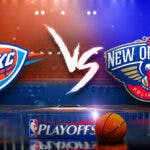While Zion Williamson is a monster on the NBA hardwood, he's facing another kind of challenge off the court. The legal battle between Williamson and his ex-agent Gina Ford has waged on for over a year now — now known as the Zion Williamson lawsuit drama.
The recent news is that Gina Ford of Prime Sports filed a document in Miami-Dade Circuit Court. The document requests him to answer various leading questions that may potentially affect his initial eligibility at Duke two years ago.
What Went Down?
https://www.youtube.com/watch?v=RmxqipiRFDw
To understand what the lawsuits filed are all about, let's look at the facts.
ESPN's Adrian Wojnarowski reported about the events that transpired more than a year ago.
On April 20 of last year, Zion Williamson signed a contract for representation with Prime Sports, a Miami-based marketing firm for which Ford is the president. This was five days after Zion officially declared his intent to enter the 2019 NBA Draft.
In the contract, there was a clause indicating that it could not be terminated for at least five years.
On May 31, Zion's family informed Ford and Prime Sports that they would go in a different direction and no longer honor the contract. From there, the agency threatened to sue Williamson for damages upwards of a $100 million.
Zion Williamson is now represented by Creative Artists Agency (CAA) – Sports. They represent a number of big name stars such as Chris Paul, Joel Embiid, and Karl-Anthony Towns to name a few.
Zion and Ford both ended up suing the other. We're here to give you the details from both sides.
Zion Williamson Lawsuit Against Ford
Before Prime Sports could even pursue legal action, Williamson and his legal team beat them to the punch. On June 13, he sued his former agency and asked the court to grant him clear separation. He filed this in the U.S. District Court for the Middle District of North Carolina.
Zion's main assertion is that the contract Prime Sports had him sign was not compliant to the standards set by the North Carolina Uniform Athlete Agent Act (UAAA). This act aims to protect sports personalities and athletes from potentially unscrupulous agents.
Williamson's camp cites three (3) main reasons why the contract should be void:
First, Prime Sports is not officially certified by the NBA Players Association. Second, the agency isn't a registered as an athlete agency in North Carolina or Florida And lastly, the contract failed to include a conspicuous note in boldface that explicitly said that he would lose his amateur eligibility the moment he signs
All these are requirements stipulated in the UAAA.
Aside from this, a report from NOLA.com also shed light on Ford's pursuit of Williamson as a client in the first place. Zion's attorneys described Ford as “predatory” and that she exaggerated her ties to certain athletes she's worked for in the past.
She even claimed Usain Bolt as her prized client. However, she supposedly was just one member of a team that represented him for a period in the past.
Gina Ford's Lawsuit against Zion Williamson
Upon receiving the lawsuit filed against Prime Sports, Ford counter-sued on June 19 – a day before Zion would officially go first overall to the New Orleans Pelicans.
Her camp cited a gross breach of contract the moment he signed with CAA. The damages she sought were in excess of $100 million which considers the profits lost from potential contract negotiations and sponsorship deals for the minimum 5 years he would have been under contract.
They also contested the supposed contract violations against the UAAA. Ford claimed that Williamson had already declared for the draft at that point, with no intention of returning to school.
She cited the more lenient rules already in place to allow players to return to college, even after hiring representation.
Latest Developments
Prime Sports' camp filed an additional document in federal court that asserted they had sent a sum amounting to $100,000 to Zion's stepfather. The document stated that they “demanded an immediate contract advance” once he signed the contract last year.
This was reported on by Daniel Wallach, legal analyst for The Athletic.
Ex-agent says she wired $100,000 to Zion Williamson’s stepfather’s bank account “within days after” he entered into the exclusive marketing agreement. She says that Zion had demanded “an immediate contract advance” upon signing the contract. pic.twitter.com/5LzFQHTbS1
— Daniel Wallach (@WALLACHLEGAL) May 11, 2020
What were the interrogatory questions for Zion?
The interrogatories in question specifically relate to the residence that his parents lived in while he was playing for the Blue Devils over a year ago.
These queries also request for Zion to confirm or deny knowledge on alleged incentives his mother and stepfather received from Duke, Nike, and Adidas.
The precise phrasing of the questions were reported on by Sporting News
Here is the exact language from the interrogatories filed in Miami:
- Who owned the house at which Sharonda Sampson and Lee Anderson (your mother and step-father, respectively) lived during the time that you attended Duke?
- Fully state all facts that show how Sharonda Sampson and Lee Anderson … found and paid for the house in which they lived during the time that you attended Duke.
- Identify by landlord name, address, telephone number, and monthly rental rate, the property that you and your family lived in during your attendance of Duke University.
- Before attending Duke University did you, or anyone acting on your behalf, including, but not limited to, Sharonda Sampson, Lee Anderson, Sharonda Sampson Consulting, or any other person or intermediary) directly or indirectly (through persons on your behalf) accept money, benefits, favors or other things of value to induce or incentivize you to select Duke University as your college for undergraduate study?
- Before attending Duke University did you, or anyone acting on your behalf, including, but not limited to, Sharonda Sampson, Lee Anderson, Sharonda Sampson Consulting, or any other person or intermediary) directly or indirectly (through persons on your behalf) accept money, benefits, favors or other things of value to induce or incentivize you to use and/or wear Nike tennis shoes and other products?
- Before attending Duke University did you, or anyone acting on your behalf, including, but not limited to, Sharonda Sampson, Lee Anderson, Sharonda Sampson Consulting, or any other person or intermediary) directly or indirectly (through persons on your behalf) accept money, benefits, favors or other things of value to induce or incentivize you to use and/or wear Adidas tennis shoes and other products?
However, Wallach asserts that Williamson is under no obligation to answer these questions any time soon. This is mainly due to issues on jurisdiction.
Zion Williamson will NOT have to answer those requests for admission or interrogatories. At least not for several months. They were filed in a Florida lawsuit that is on hold against him while he challenges personal jurisdiction on appeal. He’s under no obligation to answer them.
— Daniel Wallach (@WALLACHLEGAL) May 11, 2020
Ford's lawyer Willie Garie was about these allegations against Williamson, in an interview with The Athletic.
“We have ideas, opinions and some leads of our own,’’ Gary told The Athletic. “We are looking for information to support our case. This is what we want to know.”
If allegations against Zion can be proved, what happens next?
The possibility that Ford's team can prove that Williamson received some form of benefits will be a major blow against the Pelican star's case.
The crux of their argument hinges on Prime Sports' violation of UAAA rules, which protects student athletes.
If it can be proven that Zion received monetary payment or benefits, then he would no longer be considered a student athlete. Therefore, the UAAA retroactively no longer applies to him.
“It doesn’t matter when the contract is entered into. If you’re no longer a student-athlete, the rules of the NCAA no longer apply,’’ Ford’s attorney Larry Strauss told The Athletic. “The nuance is that this does not just apply to him. Any third party that acted as an agent, his parent or handlers, all of their actions can also affect eligibility.’’
It's important to note that it does not have to be Zion in particular who received benefits. Any relevant third party that acted on his behalf could implicate the superstar.
Looks like there might be two different court battles on Zion's mind when the NBA resumes. We'll keep you posted as the Zion Williamson lawsuit debacle continues.




